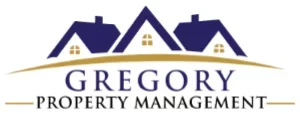Property management operations budgeting:
The real estate property management company, in consultation with the owner, will prepare detailed budgets for the day to day operations of the property. This function involves aspects of all the other functional areas, as it allocates funds for their performance. Not only will the income from rents need to be estimated, a reasonable estimate of expenses for the other three functional areas will need to be made. Costs for tenant services, repairs and maintenance, and administration will need to be closely approximated.
Capital expenditures budgeting:
Properties that fall into obsolescence will experience lower rents and a less attractive return on investment as the property ages. A long-term budget for capital improvements should be developed. Renovation, remodeling, and more modern appliances will help to maintain and increase rental income in competition with newer properties. Capital improvements are normally not expensed in the years they are done. An accountant can help to set up costing over their useful life. Certain tax advantages could result from financing the improvements.
Marketing and advertising budgeting:
Though word of mouth can bring new tenants, effective competition in the marketplace will require a marketing plan and advertising budget. Consistency is quite important in advertising. Develop a budget to fund regular periodic ads in media that have a proven track record in generating tenants. Budgeting for increased marketing when vacancy rates increase is also a prudent plan. Coordinating increased marketing to announce renovation or improvements is also a good strategy.
Bringing it all together:
The real estate property management company is the agent of the owner, and should work closely with the owner to maximize rental income and return on investment for the property. The first step in that process, and quite important, is comprehensive budgeting.
A thorough knowledge of competitive properties, their comparative features and rental rates, is imperative. Plan for renovations and improvements and their funding. Be as accurate as possible in estimating ongoing management expenses for repairs, maintenance, and administration. Maximize rental prices in relation to competition and current market conditions. Hopefully, when all this is done, income will exceed expenses, and you’ll be managing a profitable property for the owners.
content provided by James Kimmons @ http://realestate.about.com/od/propertymanagement/p/manage_finance.htm
